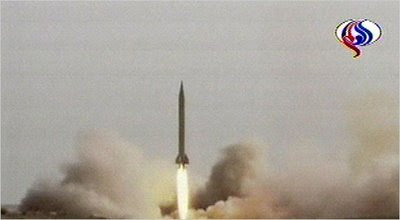 Senator and Democratic presidential candidate Barack Obama is committed to withdrawing American military forces from Iraq. He plans to have this action completed within 16 months of taking office.
Senator and Democratic presidential candidate Barack Obama is committed to withdrawing American military forces from Iraq. He plans to have this action completed within 16 months of taking office.
That time line, through no prescience on his part, is probably achievable. It is achievable because of the surge - which he said would not work, by the way. Thanks to the increase in the number of troops, changes in tactics and increased capabilities of the Iraqi military and security forces, we may be able to bring most of the troops home even before his artificial deadline.
The time line is really not the issue - it is his characterization of what he hopes to accomplish. Let's look at his words (taken from his official campaign website).
“So when I am Commander-in-Chief, I will set a new goal on day one: I will end this war. Not because politics compels it. Not because our troops cannot bear the burden- as heavy as it is. But because it is the right thing to do for our national security, and it will ultimately make us safer.”
The problem is not the plan to withdraw American forces - the senator has said he will consult with the military commanders and assess the security situation in Iraq. That's pretty much what the President and Senator McCain have been saying without adding artificial time lines.
The problem is his choice of words. The senator, as we all know, is a gifted orator and talented speechwriter, so we have to assume he has chosen his words carefully. The offending phrase is "end the war."
We should not "end" the war, we need to "win" the war. Packing up and going home is not a good idea unless we have accomplished some key objectives. Just because we can leave on a a particular date does not mean that we should. Although the "security situation" may allow us to safely withdraw, the assessment should be based on making sure we do not leave a failure waiting to happen.
I guess the question the senator needs to answer is, "Do you want to win in Iraq?" If you think that is not as important as merely "ending" the war, you do not deserve to be the commander in chief of the fine young men and women who want to win in Iraq.









 Israel's demands are simple. They demand the release of Corporal Shalit and the cessation of the daily rocket and mortar attacks into southern Israel from the Gaza Strip. These attacks - Katyusha rockets, homemade Qassam rockets as well as 60mm, 82mm and 120mm mortars - have been going on for at least the last seven years. They increased in scope after the Israelis left Gaza in 2005.
Israel's demands are simple. They demand the release of Corporal Shalit and the cessation of the daily rocket and mortar attacks into southern Israel from the Gaza Strip. These attacks - Katyusha rockets, homemade Qassam rockets as well as 60mm, 82mm and 120mm mortars - have been going on for at least the last seven years. They increased in scope after the Israelis left Gaza in 2005. 

.jpg)
